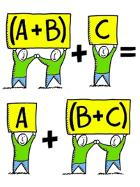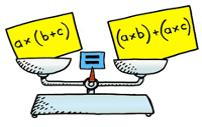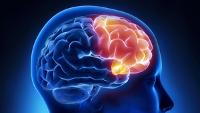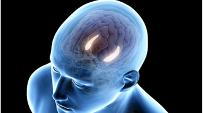Last week's blog introduced the concept of comprehensive evaluation for a child experiencing learning difficulties. This week we include information regarding the different areas of development that are typically covered in comprehensive evaluation for learning difficulties.
Let’s take a look at each area of functioning that may be assessed to see what types of information is gathered:
Cognitive Functioning: measures the ability to process different types of information such as verbal comprehension (how the individual understands verbal information they encounter), visual-spatial abilities (how the individual integrates what they see with the world around them), nonverbal reasoning abilities, short-term memory and processing speed (the ability to quickly and efficiently process simple information). The results show a pattern of strengths and weaknesses that illustrates a pattern of learning.
Academic Functioning: measures skill levels in reading, math, and written expression. Reading measures look at decoding (the ability to sounds out and identify words), oral reading fluency and reading comprehension. Math measures typically look at math problem solving such as un-timed basic skills (counting, identifying shapes, etc.), and everyday applications of mathematics (time, money, word problems, etc.), geometry, and algebra. Numerical operations, such as un-timed word problems, basic operations with integers, geometry, algebra, and calculus are also assessed. Math fluency includes timed tests of addition, subtraction & multiplication (if age appropriate). Measures of written expression include sentence and paragraph writing along with spelling.



Images by _Alicja_ from Pixabay
Phonological Processing: Defined as the detection and processing of speech sounds, phonological processing includes three areas. First, phonological awareness looks at how a student understands the sound/structure of oral language. Second, phonological memory involves the ability to recall sounds, syllables, and words. Third, phonological access looks at the speed that the student can name objects, colors, digits, and letters. In sum, phonological processing is the building blocks of reading.

Photo by Skitterphoto from Pexels
Executive Function: Measures attention, impulsivity, and hyperactivity It also looks at the student’s ability to regulate behavior, emotions, and thought processes. These measures include parent & teacher feedback. In-depth memory can also be assessed if necessary. These measures look at the student’s short-and longer-term memory, along with visual and auditory memory.


Photos from Janulla from American Stroke Association and News Medical.
Language Development: Measures basic core language, receptive language (the ability to understand spoken language), expressive language (the ability to use words to express oneself), language content (vocabulary and word knowledge), and language memory (memory dependent language tasks such as following directions).
Motor Development: Measures fine and gross motor coordination skills necessary for school performance.
Emotional/Social/Behavioral Development: Checks for these types of problems related to the diagnostic questions being assessed. Typically, when a student is experiencing problems in one area (i.e. reading or math), is may affect other areas (i.e. self-esteem). Parent and teacher feedback regarding the student's emotional/behavioral development is included.
In next week's blog we will show how we put the pieces of the puzzle together to draw conclusion regarding how your child is learning, the difficulties he/she is experiencing, and the recommendations to help your child be more successful in school and in life.
Cynthia Johnson, PhD, NCSP is a licensed Clinical Psychologist and a Nationally Certified School Psychologist who specializes in diagnosing and treating children and adolescents with learning disabilities, gifted/2e, complex ADHD, intellectual disability, and related emotional, social and behavioral difficulties. She is the owner of StepStone Psychological Assessment and Therapeutic Services. She can be reached at [email protected]

